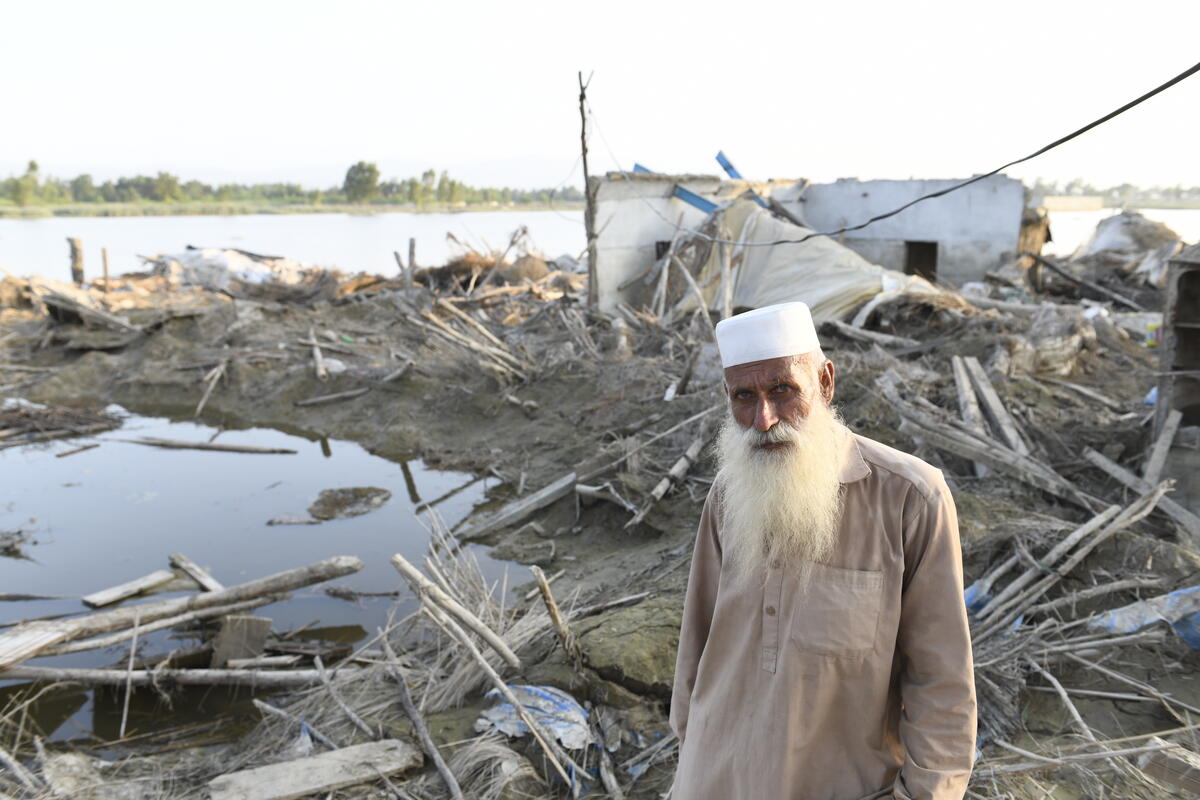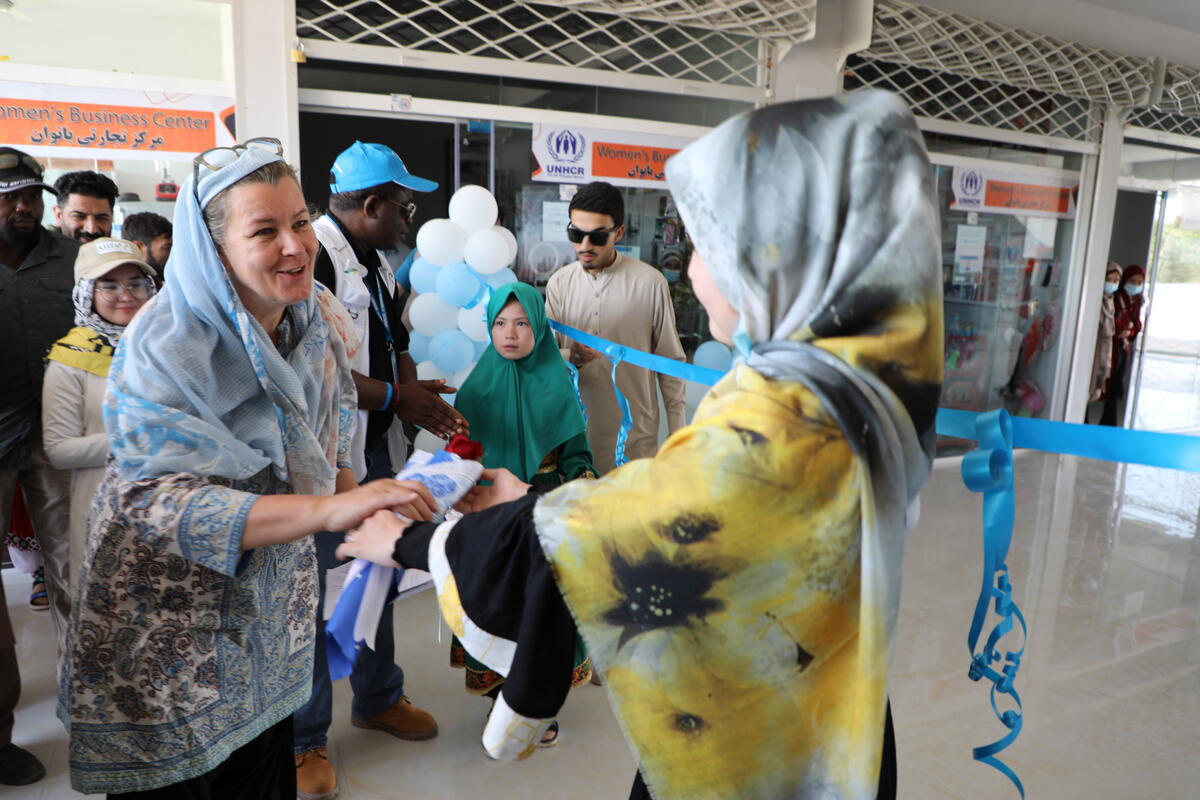Three months after floods first hit Pakistan, camps still critically important
Three months after floods first hit Pakistan, camps still critically important
Three months after floods hit Pakistan, UNHCR believes tens and possibly hundreds of thousands of people will have to remain in camps throughout the winter. This is because of persistent standing waters in parts of Sindh and Balochistan. Those hardest hit by the flooding - people affected by extreme poverty, loss of livelihoods and other vulnerabilities - may need camp accommodation even longer.
Earlier in the emergency, the expectation was that camps would be short-lived and that people would return to their areas of origin with their tents to rebuild. But today, while significant return has taken place, large tracts of Sindh and Balochistan remain under 3-4 feet of water. Local authorities are looking into how stagnant water can be pumped from villages, but this will be a massive undertaking and is likely to take time.
Over the past few weeks, UNHCR has increased camp management activities in Sindh and Balochistan. This was driven in part by the secondary displacement of thousands of people camped out in schools and other public buildings, who left these places only to find their villages still inundated or that roads were impassable. In addition, the sheer scale of the emergency has meant that thousands of people were late in receiving even basic assistance. Shelter, household items, food and clean drinking water remain the biggest needs and as winter approaches we are increasingly being asked to provide more blankets and quilts.
UNHCR has established 18 new camps in north and southern Sindh over the past few weeks, and more camps are planned as the shelter needs remain high. In Sindh and Balochistan, we are also training teams of camp managers to run organized tent cities and to form mobile teams to improve the thousands of spontaneous sites that have sprung up across the province since flood waters hit.
Meanwhile, in Khyber Pakhtunkwa UNHCR is already providing transitional shelters in Swat, Nowshera and Charsadda districts so people will have at least one room in time for winter. We are also providing more tents and other household items to flood-affected parts of Dera Ismail Khan and Tank in the south of the province.
Across Pakistan, UNHCR has assisted 1.4 million flood affected people with tents and other shelter and household relief items. But the humanitarian needs remain acute and the agency's appeal for $120 million remains only 63 percent funded. With camps now needed for longer period, we expect to have to revise our needs again in the near future.








